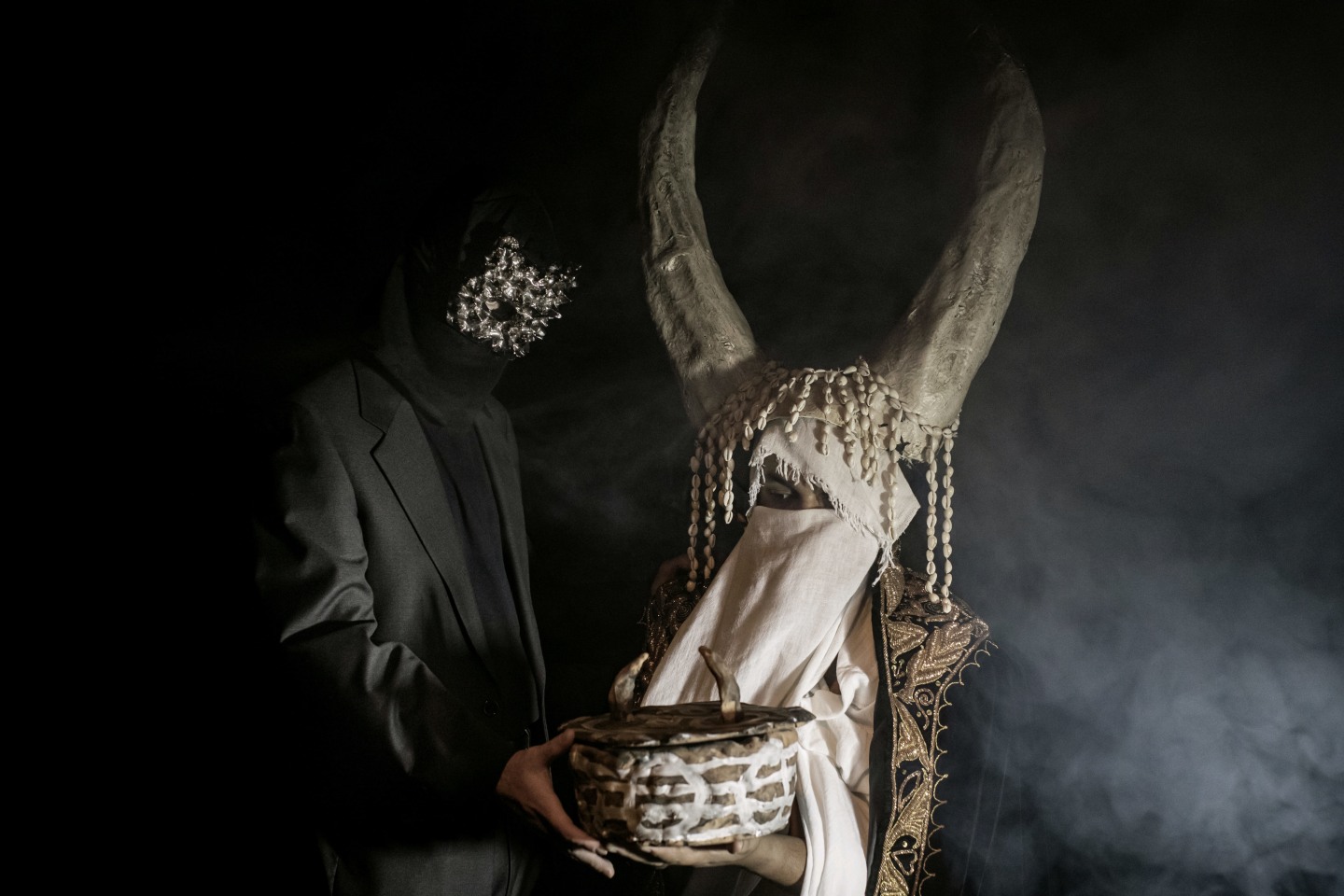Plethor X: Giovanni Isgrò (left) and Jermay Michael Gabriel. Photo by Jo Fenz.
Discover Blogly is The FADER’s curated roundup of our favorite new music discoveries.
The power of dance music to distract us from our psychological wounds is well established. But Plethor X’s hard-hitting, heady creations are anything but escapist. Instead, Italian sound designer Giovanni Isgrò and Jermay Michael Gabriel — an “Italian-Ethiopian-Eritrean trans-disciplinary artist and curator,” according to an online bio — engage critically with East Africa’s colonial history while simultaneously imagining a united and utopian future for a region deeply scarred by European exploitation.
Neither do Isgrò and Gabriel, who are both currently based in Milan, shy away from their own ingrained Eurocentrism. Rather, according to a de facto mission statement for their debut EP — What U Mean, out now via OOH-sounds — they “conspire against [it], regurgitating it from within.”
Track two, “Negro,” for instance, kicks off with a common-sense but comically rendered (through repetition, various vocal effects, and a flatulent techno rhythm) admonition not to use the n-word. The sampled vocalist then proceeds to recite almost every conceivable permutation of the n-word as the underlying beat grows steadily less silly and more infectious. If white listeners catch themselves nodding along to it and feel immediately guilty, the song is working.

Plethor X. Photo by Jo Fenz.
What U Mean comprises five original songs, followed on its digital version by four remixes of its opening track, “Bet.” In its original format, “Bet” is based around a gqom-inspired arrangement that subs out the South African style’s signature four-on-the-floor rhythms for glitchy, unpredictable percussion. Entering this spartan setting with admirable ease, Bologna-based Eritrean artist Muna Mussie recites fragments of Tigrinya nursery rhymes, her voice a calming presence in the melee rather than a separate entity anointing the instrumental from above. As the track approaches its final destination, though, these fragments begin to break up into even smaller shards, as sporadic and jittery as the rest of the mix.
Its four remixes — each by an artist affiliated with OOH-sounds, a Florentine “soft noise” label we profiled last month — manipulate the initial audio in distinct ways: Losssy’s and WEȽ∝KER’s renditions both emphasize the track’s spaciness, slowing the pace and injecting either statically charged negative space (in Losssy’s case, appropriately) or traces of tonality (in WEȽ∝KER’s) into the gaps. And nobile’s and Glass’s versions both speed up their source material, but nobile’s take evokes the fluttering sensation of a panic attack’s onset, whereas Glass’s could conceivably do very well on certain dimly lit dance floors just before sunrise.

Giovanni Isgrò. Photo by Jo Benz.

Jermay Michael Gabriel. Photo by Jo Benz.
Following “Negro,” the record moves to its title track: a bass-heavy, minimalist, footwork-adjacent bop that’s much easier — and less problematic — to dance to. But it’s on the next song, “FENDIKA,” that the project reaches its emotional peak. Featuring shapeshifting, globally minded, Milan-based producer Simone Trabucchi (STILL) and a manic masinko melody, the track blends elements of singeli with a hyperactive strain of dancehall, once again building a sonic bridge between Africa and its diaspora.
“Kifu,” the EP’s final song (excluding the remixes), returns the record to its mutedly frantic register. The track’s high-BPM tempo and deranged embellishments do little to distract the listener from its clipping sub-bass, which drags you into the black-hole center of the song’s chaotic galaxy, collapsing your neural pathways and disconnecting your cortex from the interior of your brain until all you can feel is the pulse.




